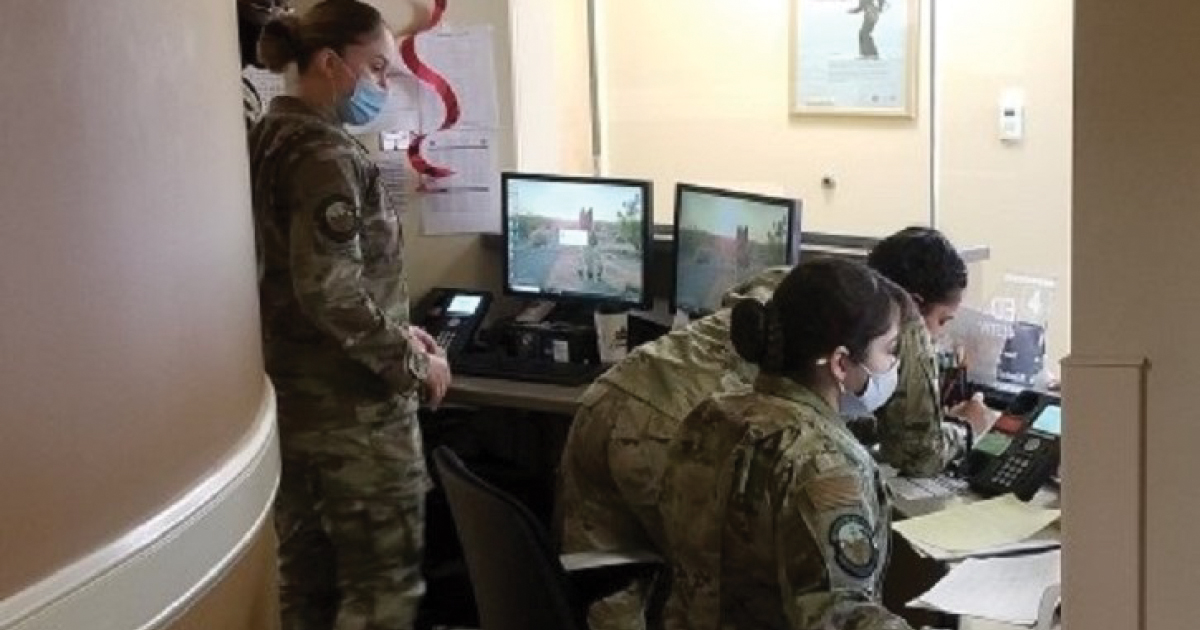By Philip R. Magaletta, Ph.D. and Christina Dean, Ph.D.
Dec. 14, 2020
 Photo by Air Force Master Sgt. Brian Cebulski, 412th Medical Group
Photo by Air Force Master Sgt. Brian Cebulski, 412th Medical Group
As health care workers involved in patient care, many service members rely on you for their medical readiness. Your continued commitment to successfully meet the demands of your job likely means overseeing and delivering timely and accurate services to a large patient caseload as well as dealing with unexpected changes brought on by the coronavirus pandemic.
The holidays — wonderful and joyous as they are — can be an additional source of stress and can disrupt your normal sleep rhythm and relaxation activities. Combined with the stress of being a military health care worker during the ongoing pandemic, we are all at risk of becoming constantly stressed and emotionally overwhelmed.
Fortunately, there are numerous resources and recommendations available to help you engage in positive self-care during the holidays. To maintain your mental and physical well-being, we encourage you to follow these strategies:
- Plan and engage in healthy escapes. During the holidays, consider your self-care needs by deliberately practicing healthy diversions away from the clinic. For example, lose yourself in a hobby, practice meditation, write in a gratitude journal, play music, go on long walks, and exercise. These escapes are useful in relaxing the body and mind, promoting a sense of joy, and countering unhealthy behaviors of isolation and substance misuse or abuse.
- Recall and refocus on the rewards and benefits of your work. Serving as a military health care worker comes with significant rewards and benefits and the holidays are a great time to take inventory of these. For example, take time to reflect on your growth as an individual, your professional development, the connections you’ve made and the knowledge you’ve gained, the importance of your public service, and the opportunities you’ve had to support and enhance the well-being of fellow service members and their families.
- Identify and maintain nurturing relationships. Repeatedly ask yourself, “Who has my six? Whose six do I have?” Consider these questions in relation to your coworkers, family, friends, spiritual advisors, and leaders. During this holiday season, be sure to acknowledge these individuals for their support as their efforts have helped you attain success and maintain balance during this stressful year. Be specific in your thanks and remember to be a source of positive support for others as well.
You remain an integral and essential part of a coordinated effort to unite, sustain, and advance the delivery of patient health care services. We applaud your efforts and commitment! During this holiday season, remember to pause to receive and integrate gratitude from others. Be good to yourself by renewing your commitment to practicing self-care strategies and taking pride in your accomplishments.
Finally, remember that you are never alone. Ask for help or support when your efforts to reduce stress aren’t successful. And be aware that health care workers are not immune to suicide risk. If you or someone you know is in need of immediate help, call:
Dr. Magaletta is a contracted psychologist subject matter expert for clinical care at the Psychological Health Center of Excellence. He has a doctorate in clinical psychology and has administrative, research, training, and practice experience in public health, safety, and educational systems.
Dr. Dean is a contracted psychologist subject matter expert for clinical care at the Psychological Health Center of Excellence. She has a doctorate in clinical psychology and has both civilian and military experience in administrative, research, training and practice experience working with service members and veterans as an inpatient neuropsychologist, trauma counselor, crisis/suicide prevention and intervention officer, applied suicide intervention skills trainer (ASIST T4T), master resilience trainer, pharmaceutical clinical research consultant, and a sexual harassment/assault response coordinator.